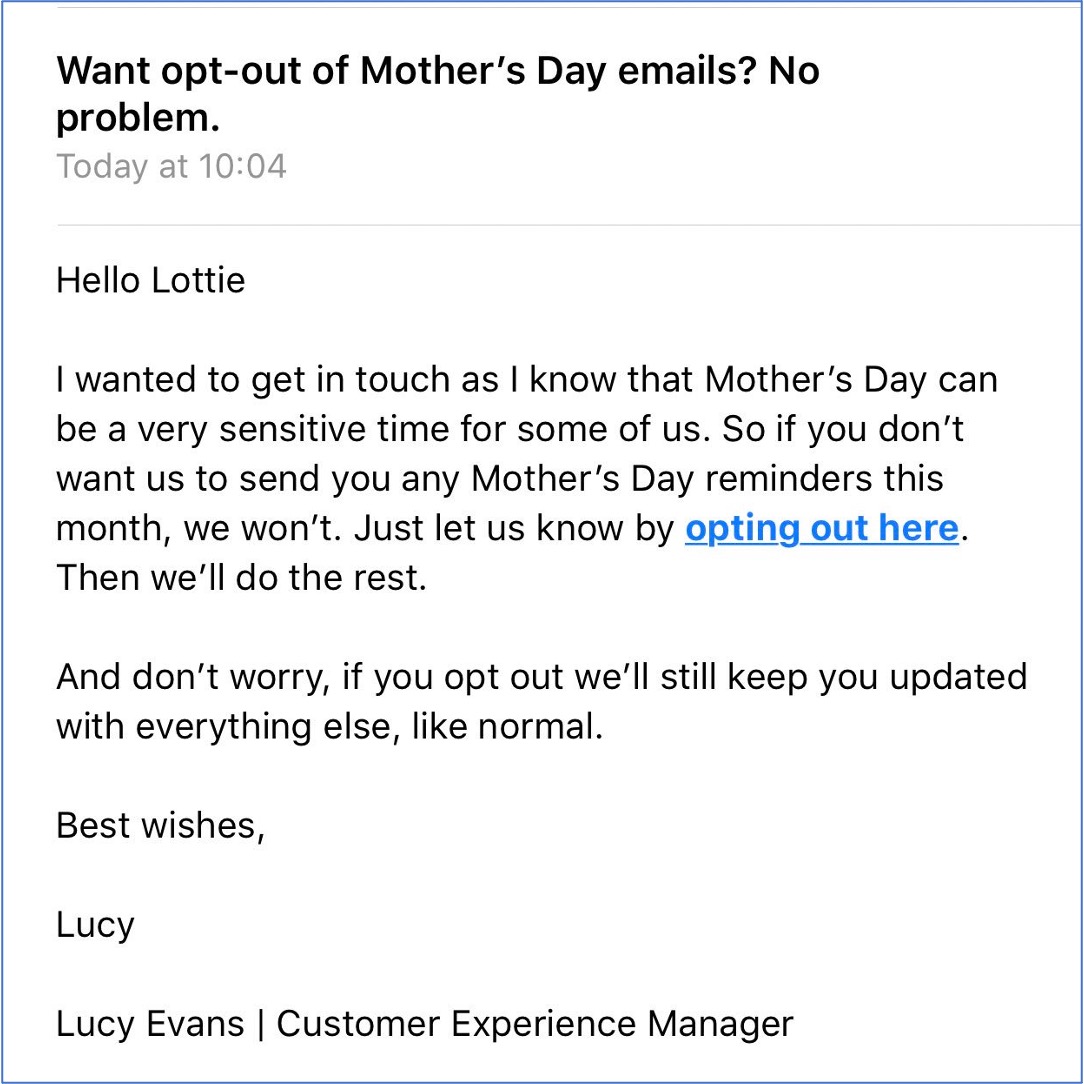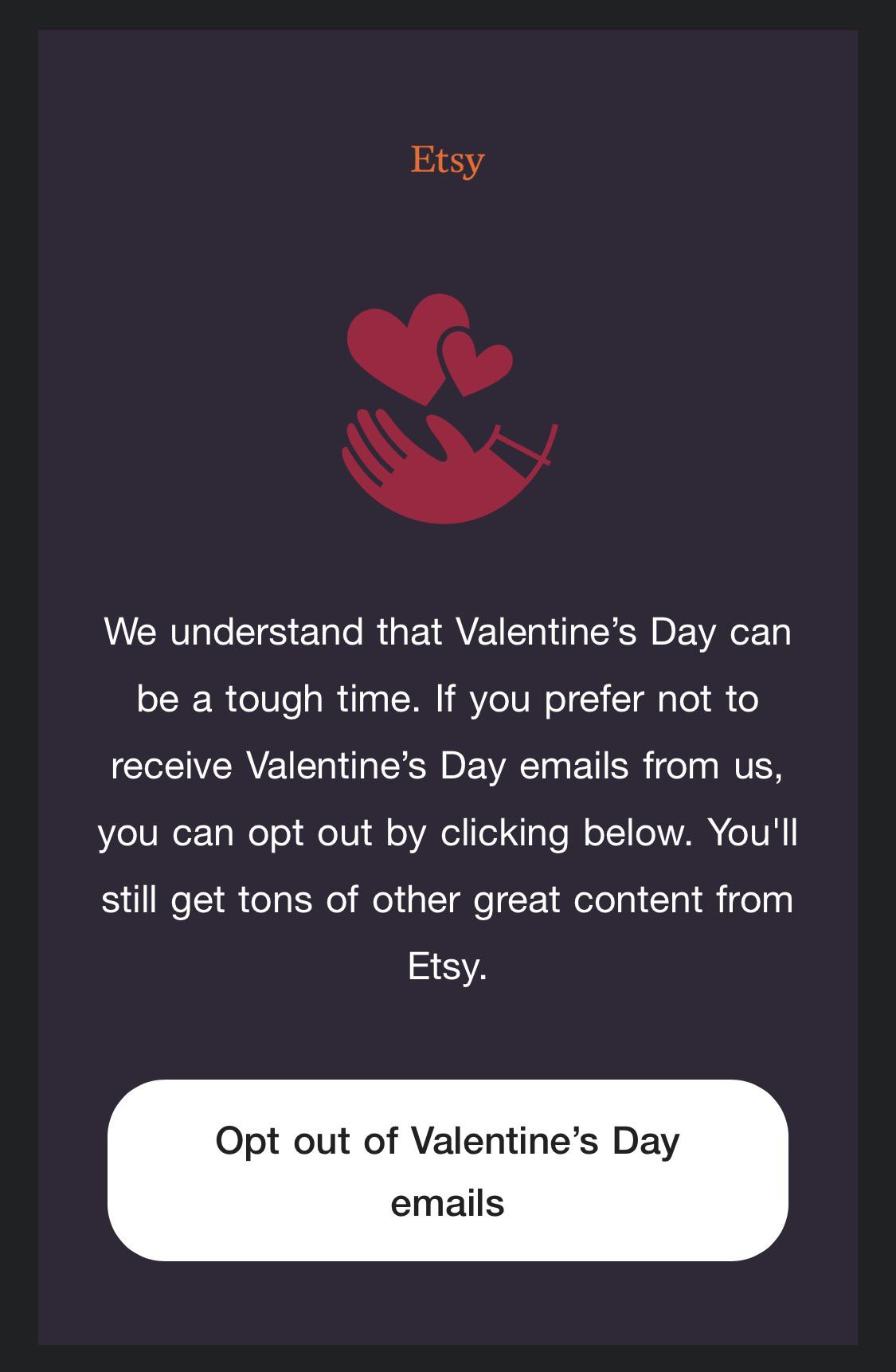By Jordan Barnhart, Account Manager, The Union
How thoughtful marketing can make a big impact

Holidays ? advertising. The emails, the social posts, and the TVCs — oh, my! These big calendar dates typically allow us to create timely, engaging content that drives conversations, and for brands, conversions. That’s why we spend so much time planning for these special moments. But it’s easy to forget that for some people, these days can be difficult.
It’s important to be mindful that holidays should not be a one-size-fits-all approach, and can be difficult for a multitude of reasons. Valentine’s Day can be a hard day for those who have lost their partners, or Mother’s Day can be a stressful time for those who are struggling to become mothers.
Typically, we use these special days to spark emotion, and as advertisers, we use that emotion to create work that is engaging and memorable. But the question is, how can we still create great campaigns and be considerate?
According to a recent survey, 81% of consumers are inspired to buy from a brand after seeing holiday opt-out emails; and brands are listening. You may have even had such an email pop in your inbox recently for Mother’s Day this March.
The thoughtful email opt-out movement aligns with a broader shift in brand messaging to become more empathetic in efforts to build relationships and build sincerity.
Before we dive into brands who did it right, let’s chat why it matters. Ads around holidays, particularly ones that celebrate relationships, can bring up major anxiety and depression in people. And the kicker is, ads are all around us. Although there are no official figures, the average person is now estimated to encounter between 6,000 to 10,000 ads every single day. It’s important we understand how we can go the extra mile for our subscribers.
Here are 2 examples of how brands have tackled thoughtful marketing through opt outs:
1. Mother’s Day
Bloom & Wild was one of the first UK brands to offer an opt-out option for Mother’s Day emails. In 2019, they made headlines for their email to their subscribers asking if they wanted to opt out of Mother’s Day-related emails.

This was a thoughtful move that brought attention to their brand from press and customers, praising them for their consideration. The opt-out was even mentioned in Parliament, as Mark Warman MP suggested “if other companies were to follow suit, the dread—and I do mean dread—around this day might be mitigated for many people.”
2. Valentine’s Day
As Bloom & Wild is often credited for starting the trend, Etsy shortly followed suit and expanded this out across Valentine’s Day and Father’s Day. Their message ensured subscribers would still get great content, just skipping out reminders that the most romantic day of the year is coming up soon. This is an amazing move on Etsy’s part because bereavement or break-ups can be hard to cope with at the best of times. Here’s a wee look on how they did it:

This approach doesn’t mean to alienate this audience, talk to them like Etsy did and reinforce they will still receive content. This is an opportunity to tailor content to the opted-out customers instead of going silent on them as these occasions approach – this insight will only help.
And the experts agree
Our resident email marketing champion Toni weighs in with a further consideration around database loss:
“Not only is this kind of decision considerate and thoughtful to subscribers’ needs, but it’s also business-savvy. If you can reduce total opt-out by providing a partial opt-out, that’s a way to reduce your unsubscribes and give the user a sense that they’re in control of the content landing in their inbox. Preference centres have long been touted as a way to offer a halfway house before users unsubscribe fully from your communications, with frequency preferences also giving a further layer of control. Email bigwig Litmus has a great write-up on all the ways a preference centre can allow subscribers to tailor their experience.”
Take the time to be human
While some critics worry companies are being overly sensitive or not sensitive enough, or hesitate to lift brands up as heroes, the reaction to the opt-out option has been overwhelmingly positive. Over the last few years, we are seeing a growing number of brands hop on board – retailers, florists, media companies etc.
So I leave you with some food for thought on thoughtful marketing – take the initiative to be sincere and think about the audiences who may not want to hear from you during holiday campaigns. After all, we are all humans speaking to humans.